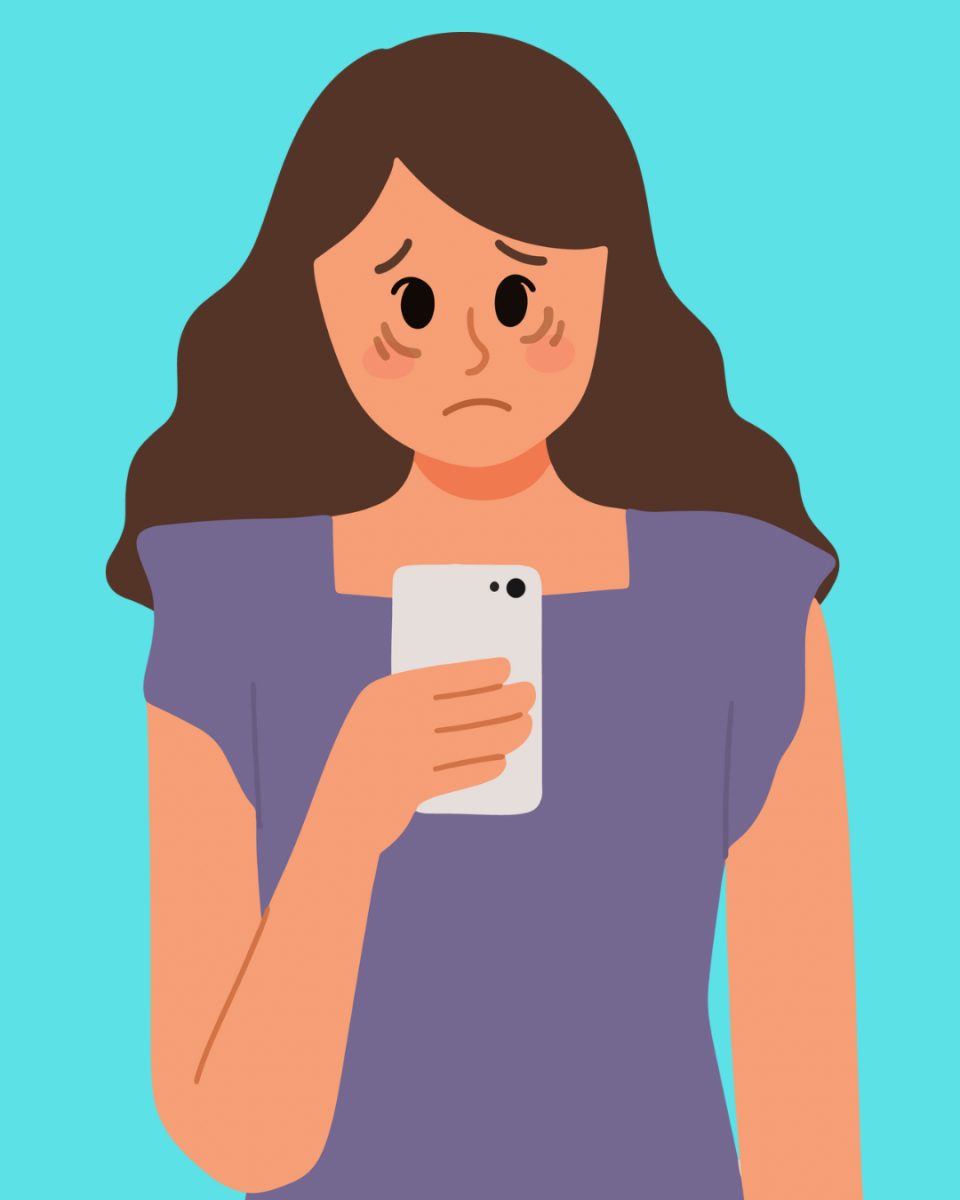The twenty-first century is inarguably an era of technology. Everyone has a smartphone, and many people carry three to four pieces of personal technology on them at all times. From laptops to smartwatches and headphones, much of the world is immersed in a carefully curated and personalized online bubble for hours each day.
“I noticed I was spending a lot of time on my phone so I put locks on TikTok and Instagram because it was embarrassing how high my screen time on those apps was,” said Ansley Kate Allen, a senior mass communication major. “I feel like I started procrastinating less though.”
Many students spend hours a day scrolling on social media, texting friends or watching videos. For some, time spent online is a way to alleviate the stressors of being a college student, but staring at a screen for hours on end might not be as stress-relieving as students think.
A 2022 study published in the National Library of Medicine called “Increased Screen Time as a Cause of Declining Physical, Psychological Health, and Sleep Patterns: A Literary Review” studied the connection between screen time and health, stress and sleep.
“Overusing digital screens during one’s adolescence and young adulthood may result in their mind relating to outside stimuli rather readily and cause a lack of attention,” the study said. “Internal triggers such as unhelpful or negative thoughts and feelings of lower satisfaction levels regarding one’s life can also be accompanied by an onset of health problems in adulthood, such as cardiovascular disease and infertility. It may cause one’s stress to increase up to levels that would turn difficult for one to handle. These ailments can result in unhealthy coping mechanisms, which eventually might increase the likelihood of sadness, depression, and anxiety in one’s later years.
In recent years, intentional limitations of time spent online have grown in popularity. Even Apple released a setting allowing users to monitor and limit their screen time each week by setting password-protected time limits on chosen apps and reporting weekly data on the number of time spent on one’s phone.
“Realizing I was spending 12 hours on TikTok a week was humbling,” Allen said.
Though ending a long day with a half hour on TikTok before bed may sound enticing, instead unwinding with a book, some journaling, a cup of tea or just sitting and reflecting on the day are much healthier alternatives. Allowing the brain time without intense stimulation is important to maintaining a personal quality of life and getting a truly restful night of sleep.


